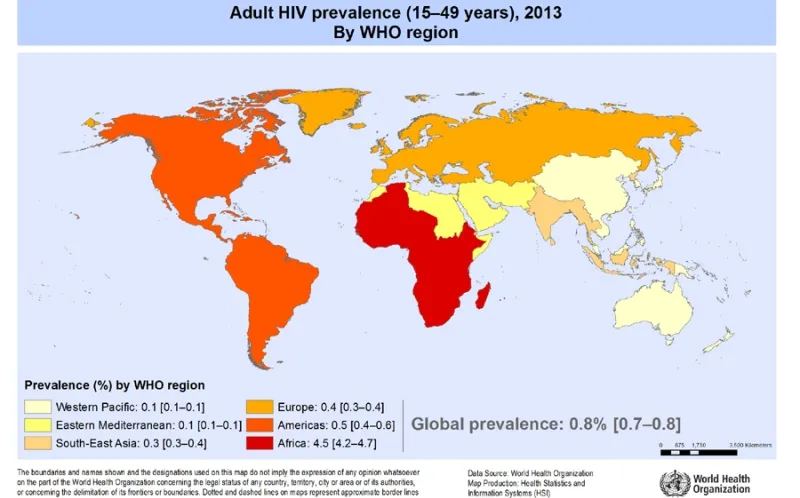How informed are you about HIV/AIDS on this World AIDS Day?
Did you know that 3.2 million children worldwide are living with HIV? Most of them were infected by their HIV-positive mothers during pregnancy, childbirth or breast feeding. And over 35 million people worldwide are currently living with HIV/AIDS.
World AIDS Day was established in order to spread awareness on the subject and get people to discuss it on open forums. With the number of different healthtech and medtech startups cropping up, it seems to have made it easier for people to ask AIDS/HIV-related queries online.
“Since January this year, we have received over one lakh queries related to HIV/AIDS on our platform and the question bank continues to grow given the lack of awareness that exists about the subject,” says Saurabh Arora, CEO, Lybrate, a healthcare platform that connects patients and doctors.

What do the numbers say?
Over 70 per cent of the queries that they receive on HIV/AIDS are from men, he adds.
Age group:
- <18: 5%
- 18-25: 52%
- 26-40: 36%
- 41-60: 6%
- 60+: 1%
Queries from Metro cities: 40%,
Queries from Non-Metro cities - 60%
Top 6 cities from which maximum queries on HIV/AIDS are received:
- Delhi
- Mumbai
- Chennai
- Kolkata
- Bengaluru
- Hyderabad
Question samples
The most commonly asked questions on the platform, according to Saurabh, revolved around what AIDS actually is, how it is contracted and its treatment. Some of them are:
- What are the main reasons for becoming an AIDS patient and how does it affect the body and how can we control it?
- Are HIV and AIDS the same thing?
- My husband has HIV. Can I still get pregnant if I have physical relations with him?
- Is there any counter-effective medicine that can be taken after getting in contact with HIV positive person?
- What are the indications for individuals affected with HIV?
There were also some other questions that clearly showedhow unaware peopleare on the subject. These included:
- I am a 23 year old guy. I have had protective sex five days back. Today I have sore throat and a bit of feeling like fever. I also have one or two rashes itching on my neck. I am afraid if there's a chance of HIV. Please suggest.
- I went to a restaurant. I ordered samosa. After eating, I noticed that the waiter who served me the samosa has a fresh wound on his finger. He used that hand. If blood from his finger came in contact with samosa or food by handling it and suppose he has HIV positive, would I get HIV from that food?
Noticing the bottlenecks that stopped people from consulting doctors for problems related to HIV/AIDS/sexual health, Lybrate was designed to keep the identity of its users completely anonymous. Their contact details are never shared even with the doctors. “It is entirely on the user to share those with the doctors they are consulting, if they wish to do so,” adds Saurabh.

Answering the queries
The queries are answered by doctors on the platform. Saurabh adds that they have distinguished sexologists, psychiatrists, psychologists, internal medicine specialists and homeopathic doctors associated with our app that for users to ask questions related to HIV/AIDS/sexual health for free and also to get multiple opinions from them.
They can also consult doctors of their choice privately after payment of fees. In both instances, contact details of the user are never shared with the doctors.
Other than that, Lybrate has a health feed consisting of health tips on HIV/AIDS and sexual health that are posted by doctors themselves.
Social stigma
AIDS/HIV has had strong social stigma and negative social implications associated with it. According to WHO, despite the advancement in scientific research and understanding, most people living with HIV or who are at risk do not have access to care, prevention measures or access to treatment.
However, despite these challenges, new efforts have shown some promising signs. The WHO says that prevention has helped reduced the rates in some small number of people in countries.







